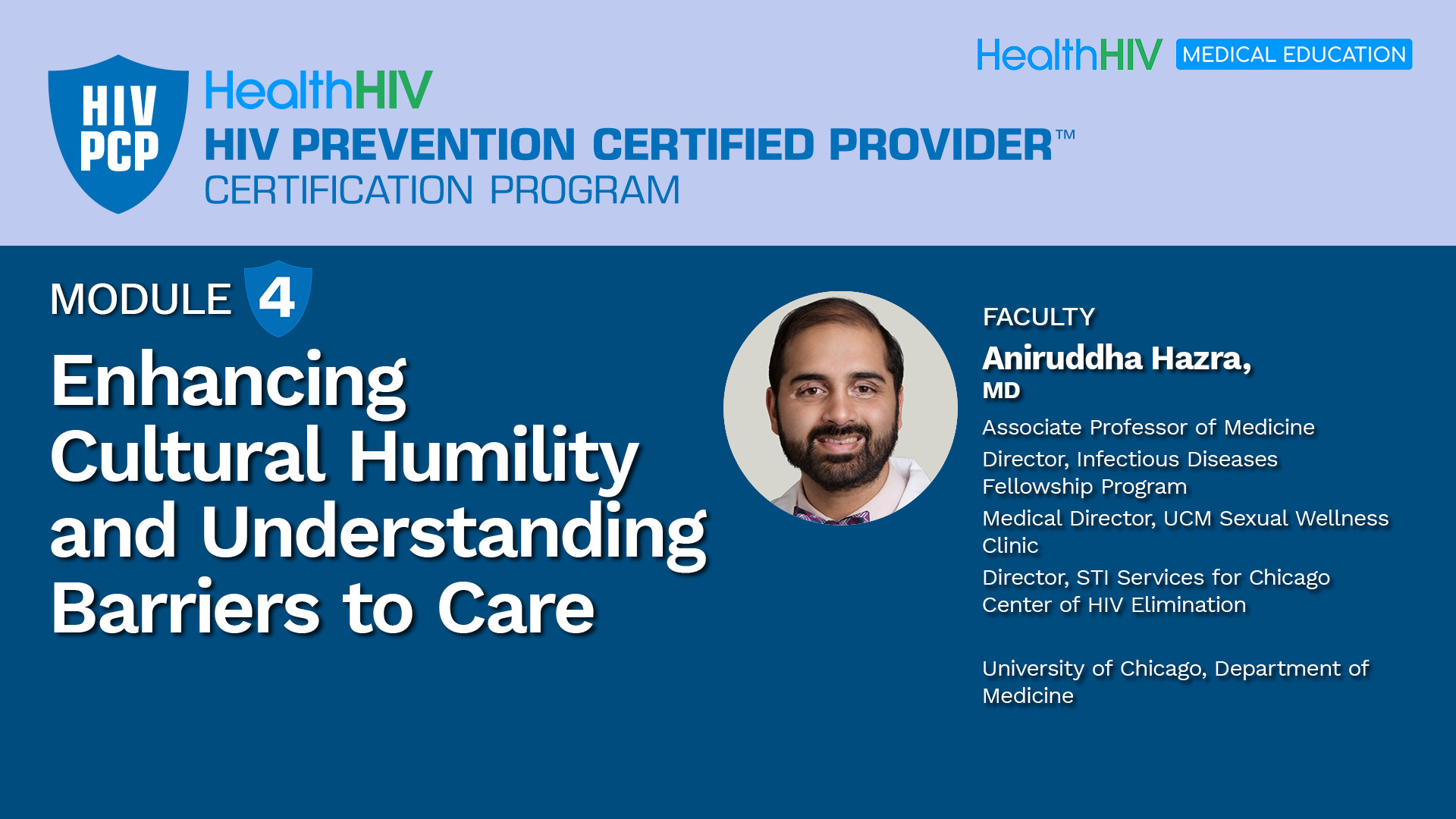
HIVPCP Module 4 | Enhancing Cultural Humility and Understanding Barriers to Care
April 2, 2025Module 4 of the HealthHIV HIV Prevention Certified Provider Certification Program. This course provides a review of the HIV care continuum, impact of intersectional stigma on risk, cultural humility, trauma-informed care, and resources to mitigate financial barriers for clients.
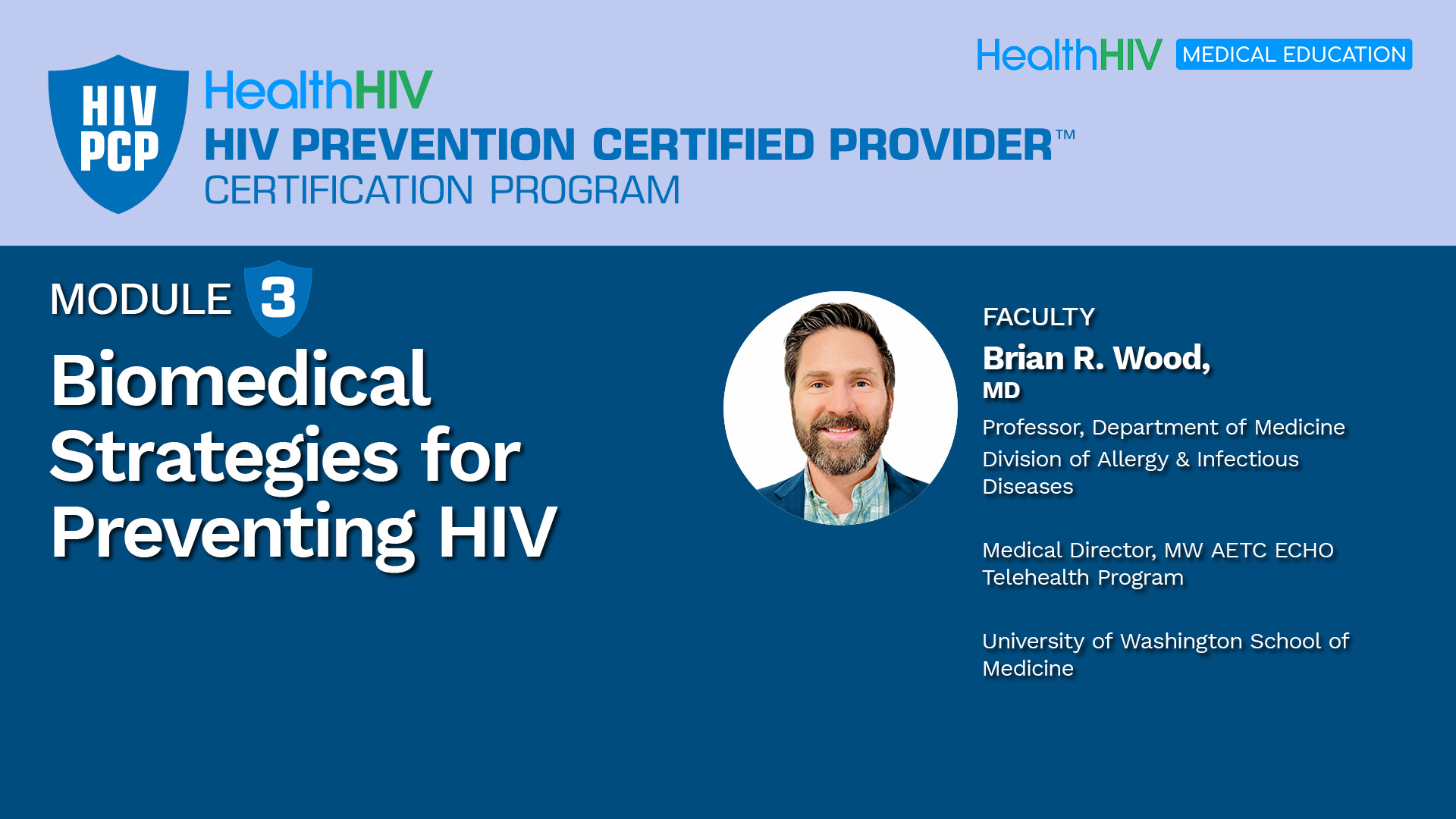
HIVPCP Module 3 | Biomedical Strategies for Preventing HIV
Module 3 of the HealthHIV HIV Prevention Certified Provider Certification Program. This course provides an outline for preventing HIV through PEP, PrEP, and TasP, covering clinical basics, research findings, CDC’s guidance on PrEP, and emerging modalities.
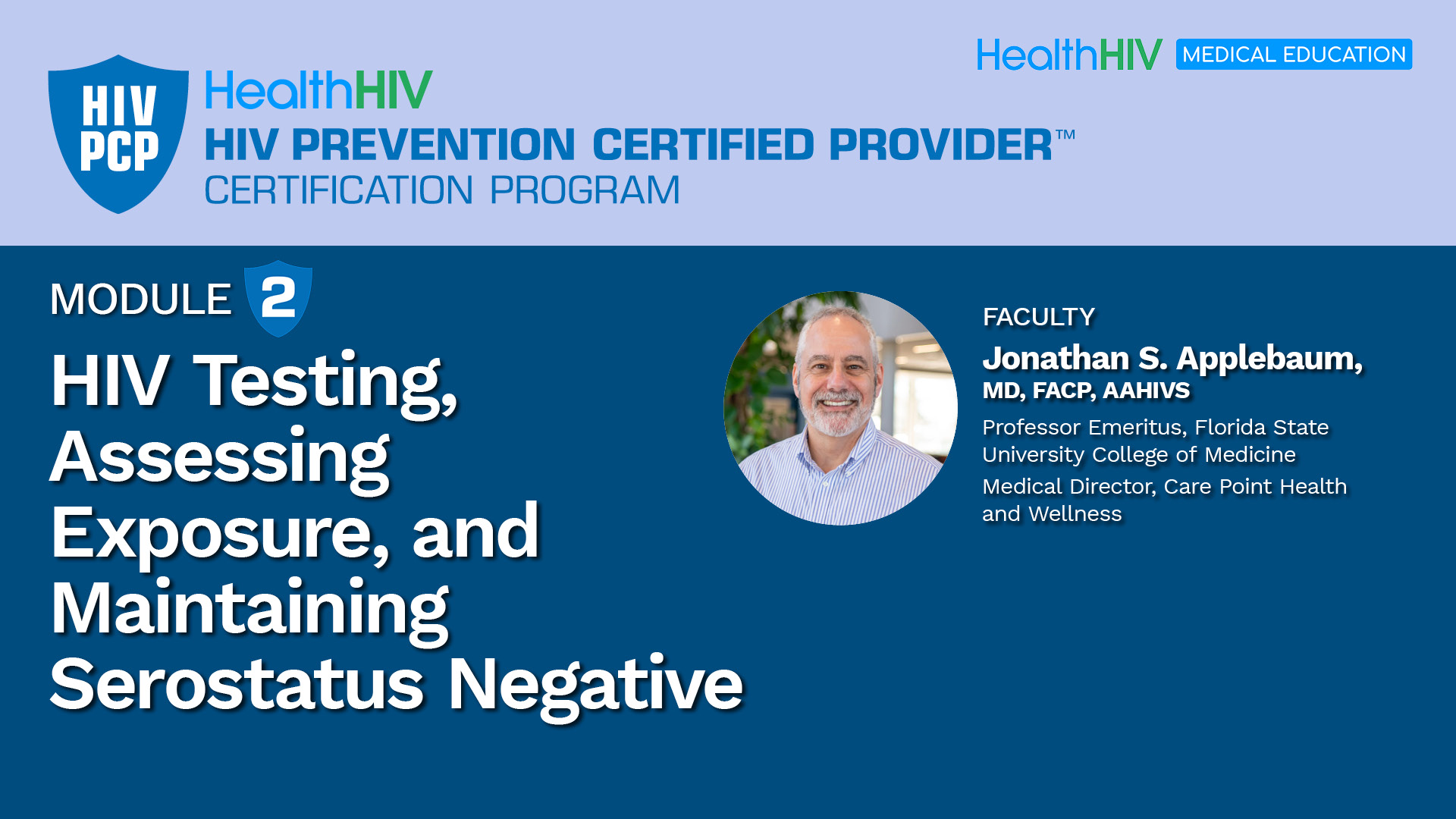
HIVPCP Module 2 | HIV Testing, Assessing Exposure, and Maintaining Serostatus Negative
Module 2 of the HealthHIV HIV Prevention Certified Provider Certification Program. This course provides information on screening and diagnosing HIV, risk identification, short behavioral interventions, a status-neutral care approach for HIV services, and the importance of sexually transmitted infection screening and HIV treatment.
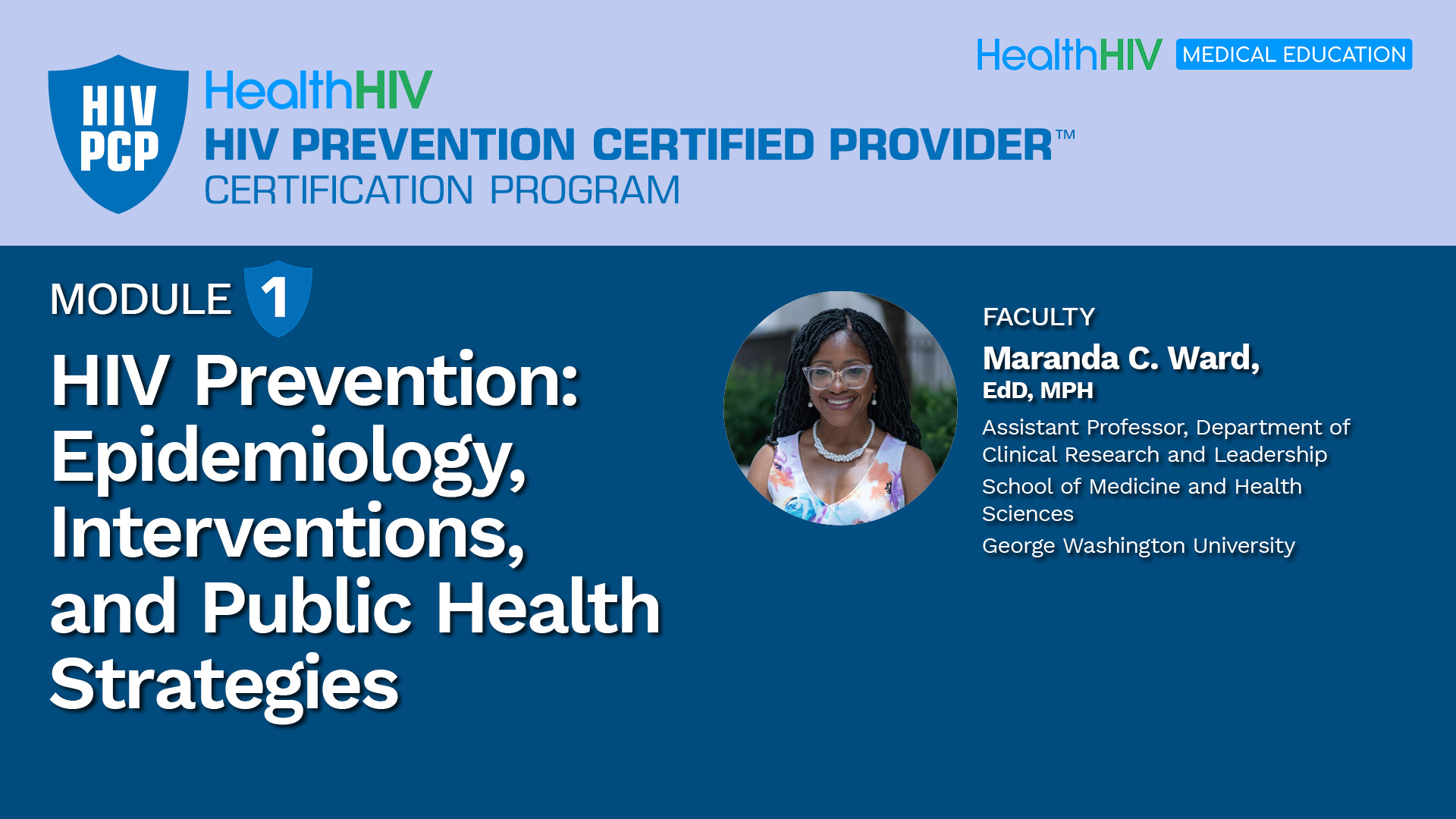
HIVPCP Module 1 | HIV Prevention: Epidemiology, Interventions, and Public Health Strategies
Module 1 of the HealthHIV HIV Prevention Certified Provider Certification Program. This course provides an overview on HIV in the U.S., touching on history, disparities, policies, and public health strategies, while emphasizing the importance of the HIV Prevention certification.
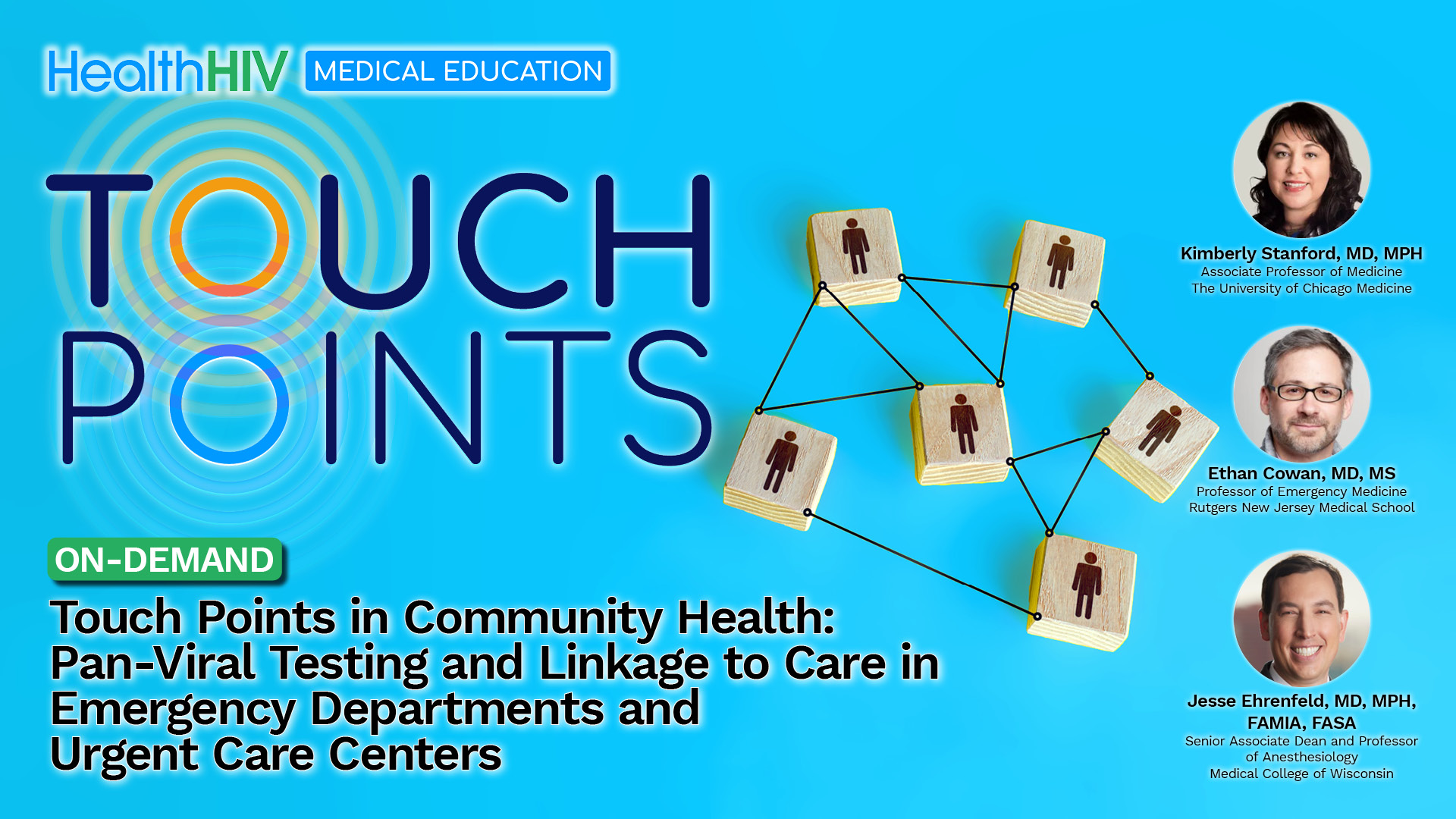
Touch Points in Community Health: Pan-Viral Testing and Linkage to Care in Emergency Departments and Urgent Care Centers
March 4, 2025Join HealthHIV and expert panelists for an interactive live webinar to exchange ideas on opportunities and challenges of implementing pan-viral testing and linkage to care within Emergency Departments and Urgent Care Centers. Emergency medicine physicians will discuss the need for pan-viral (HIV, HBV, HCV, and STIs) testing and linkage to care in EDs and UCCs, and share evidence-based standards of care for pan-viral testing.
Shifting Perspectives: The Dynamics of Bias in Individuals and Systems
February 12, 2025In this course, participants will embark on a journey to uncover the layers of bias that exist within individuals and systems, going beyond surface-level observations to understand the underlying mechanisms at play.
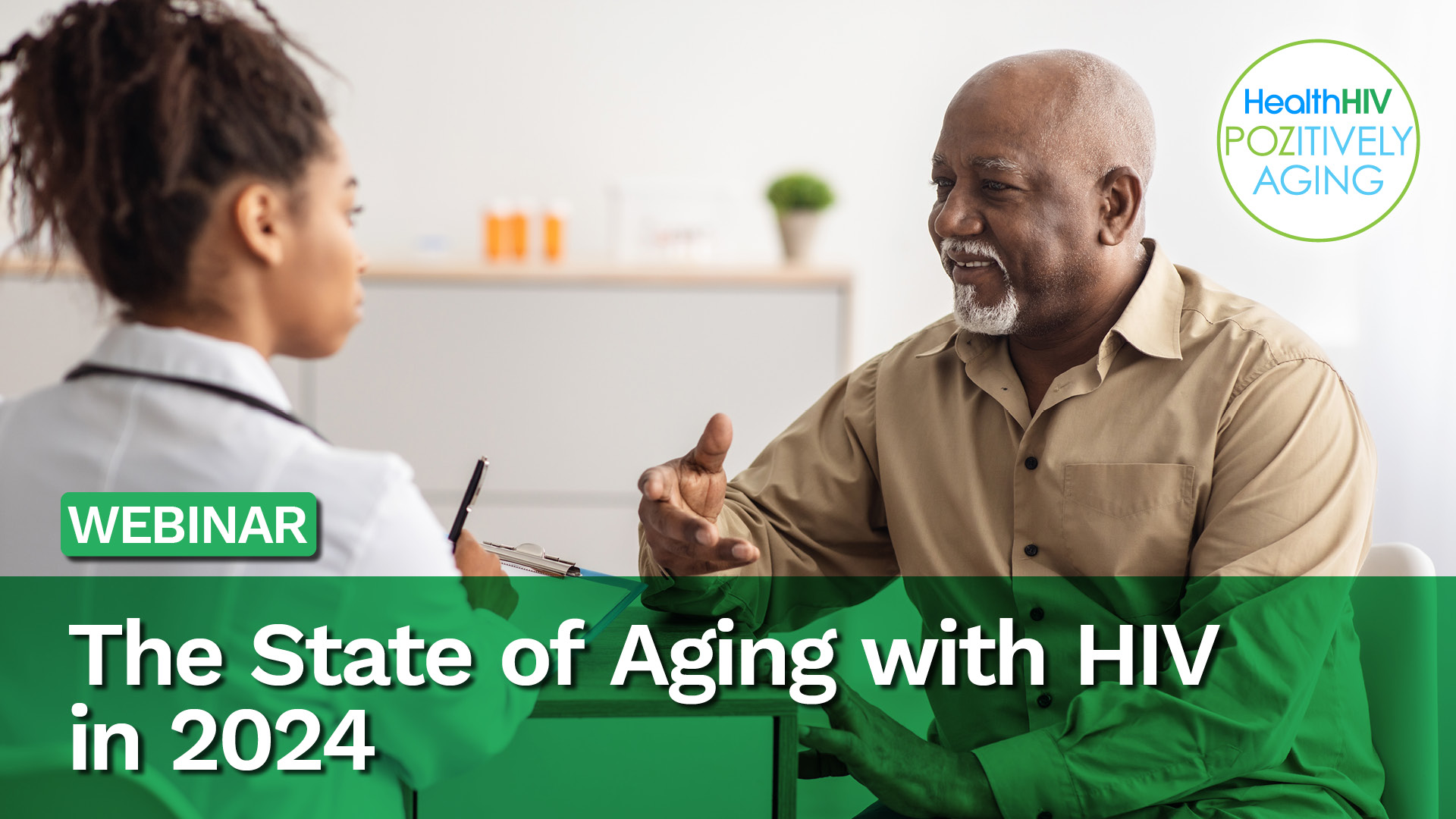
The State of Aging in 2024
January 16, 2025This webinar features initial key findings from the HealthHIV Fourth Annual State of Aging with HIV™ National Survey and expert faculty, including from the Administration for Community Living (ACL), the Office of Infectious Disease and HIV/AIDS Policy of the Department of Health and Human Services, community organizations, and HealthHIV.
The HIV-STI Nexus: Exploring the Hidden Connection
December 17, 2024The HIV-STI Nexus: Exploring the Hidden Connection session addresses how STIs can increase susceptibility to HIV and vice versa, making comprehensive screening essential for effective prevention and treatment. Experts will discuss the latest research on co-infection risks, the impact on patient health, and best practices for integrated screening and care.
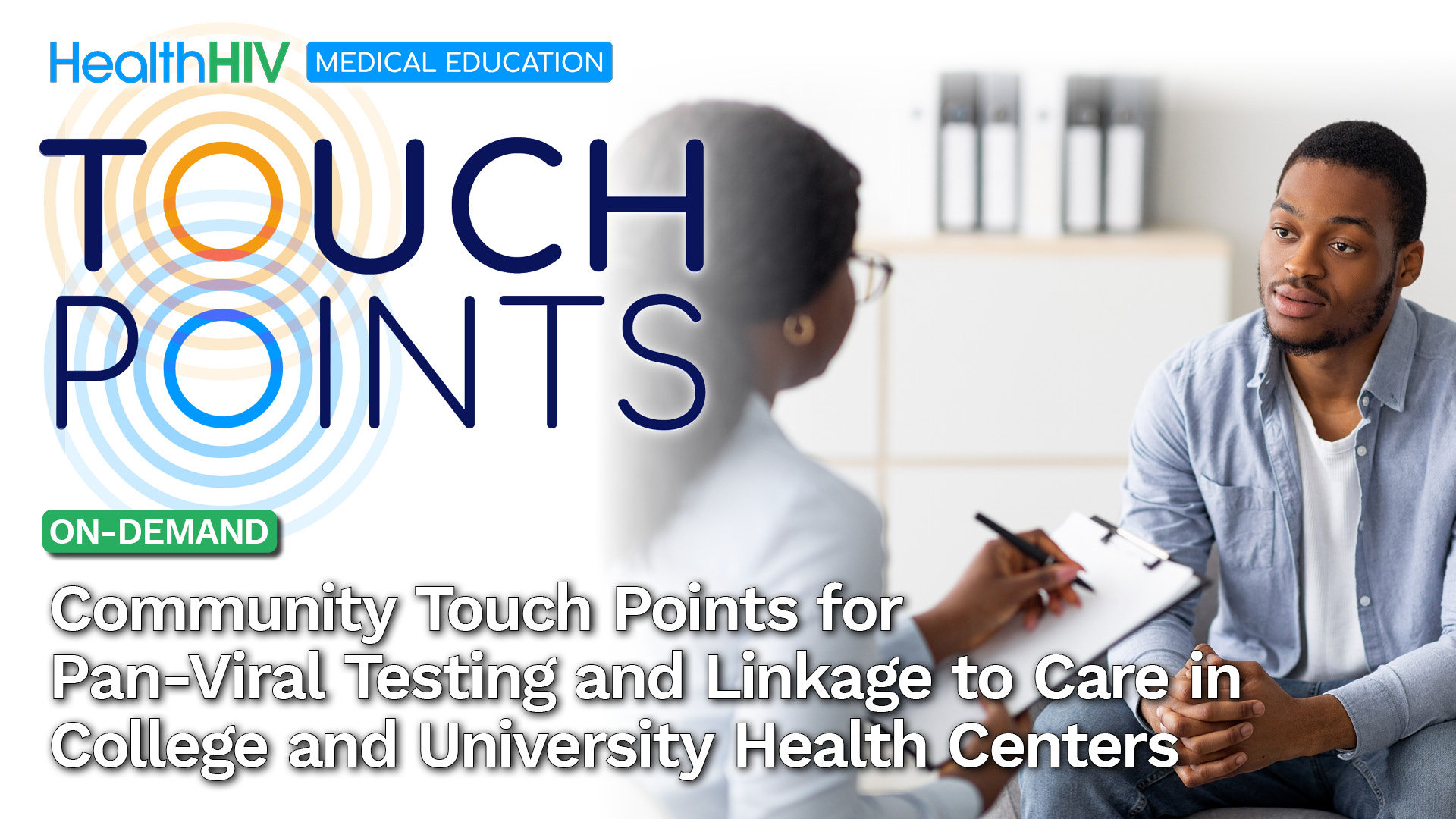
Community Touch Points for Pan-Viral Testing and Linkage to Care in College and University Health Centers
December 4, 2024Join HealthHIV and expert panelists for an interactive webinar to exchange ideas on opportunities and challenges of implementing pan-viral testing and linkage to care within student health centers and university health centers.

The Heart of the Matter: Cardiovascular Health in People Living with HIV
November 7, 2024This webinar will provide a comprehensive overview of cardiovascular disease (CVD) risk among people living with HIV and the underlying factors contributing to this risk. Participants will learn about current risk prediction tools available for assessing CVD risk in people living with HIV, as well as the findings and implications of the REPRIEVE trial.
Managing Diabetes and HIV in the DMV: An Integrated Approach for Healthcare Providers
November 6, 2024Designed for healthcare professionals in the DMV (District of Columbia, Maryland, and Virginia), this one-hour session will provide key insights into preventive strategies and management techniques for patients living with both conditions.
Strategies for HIV Testing and Linkage to Care for People Experiencing Homelessness (PEH)
September 18, 2024This webinar will discuss the critical challenges and strategies involved in screening, diagnosing, and linking people experiencing homelessness to appropriate HIV care.

